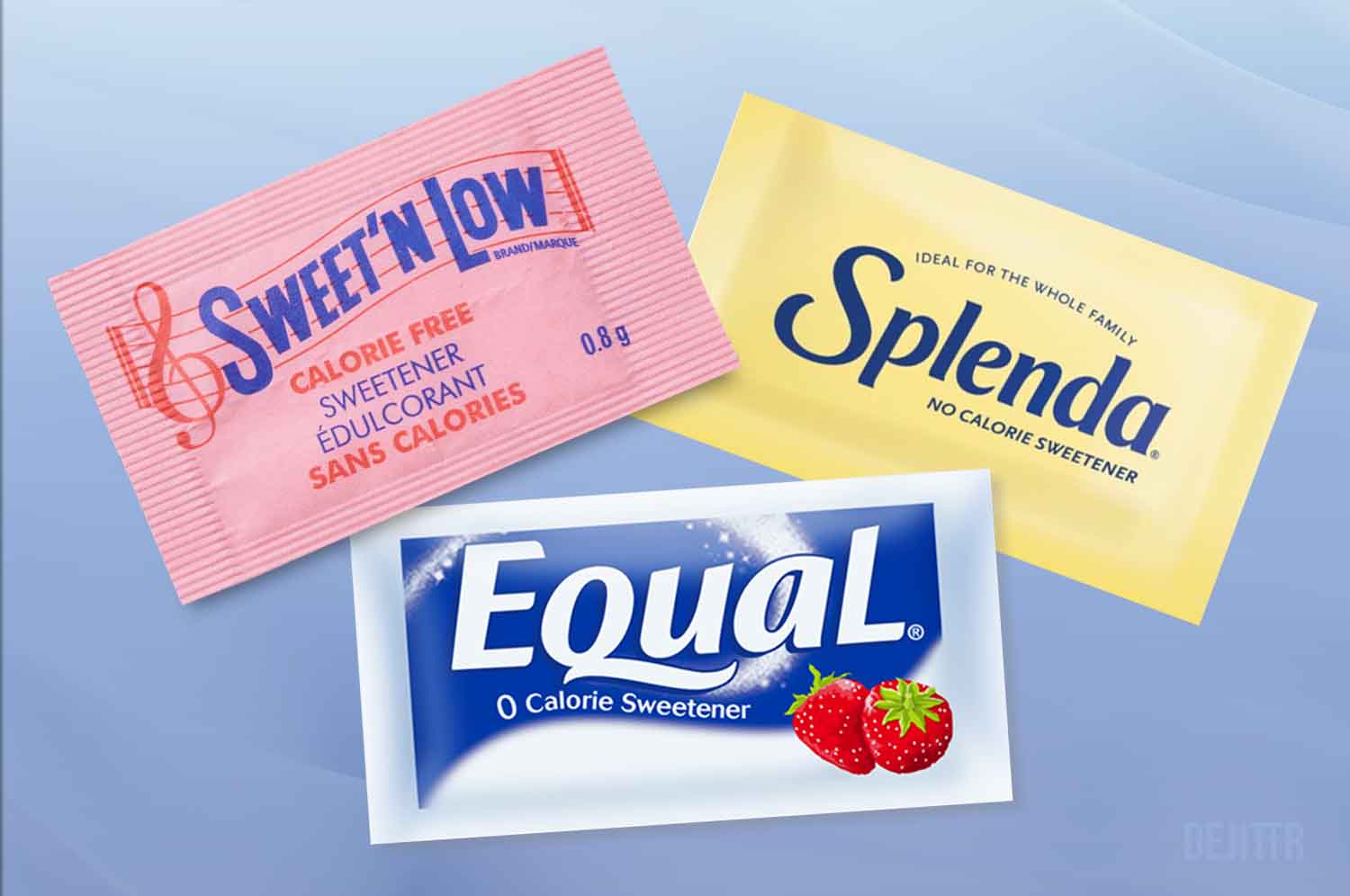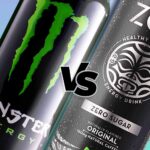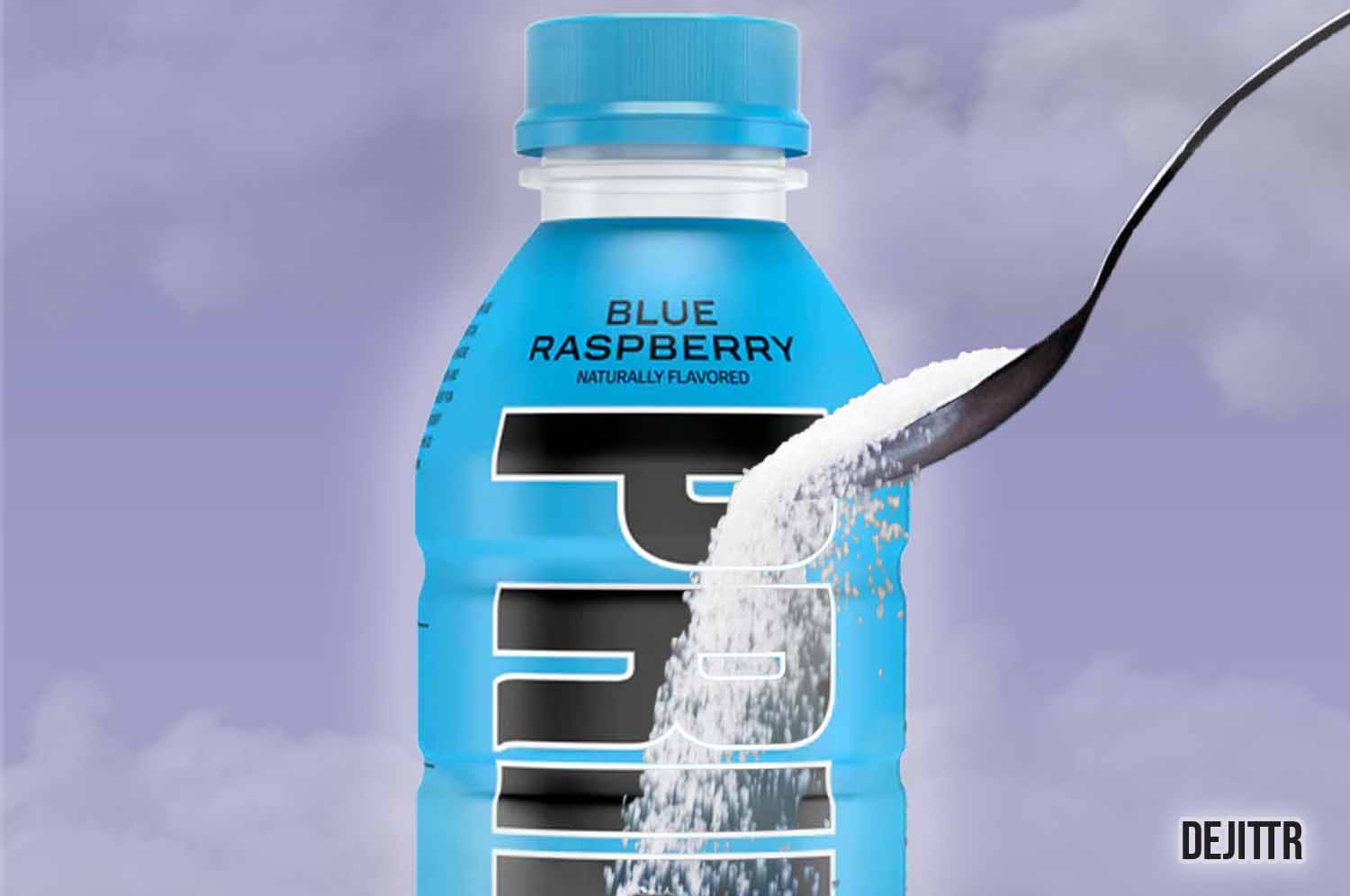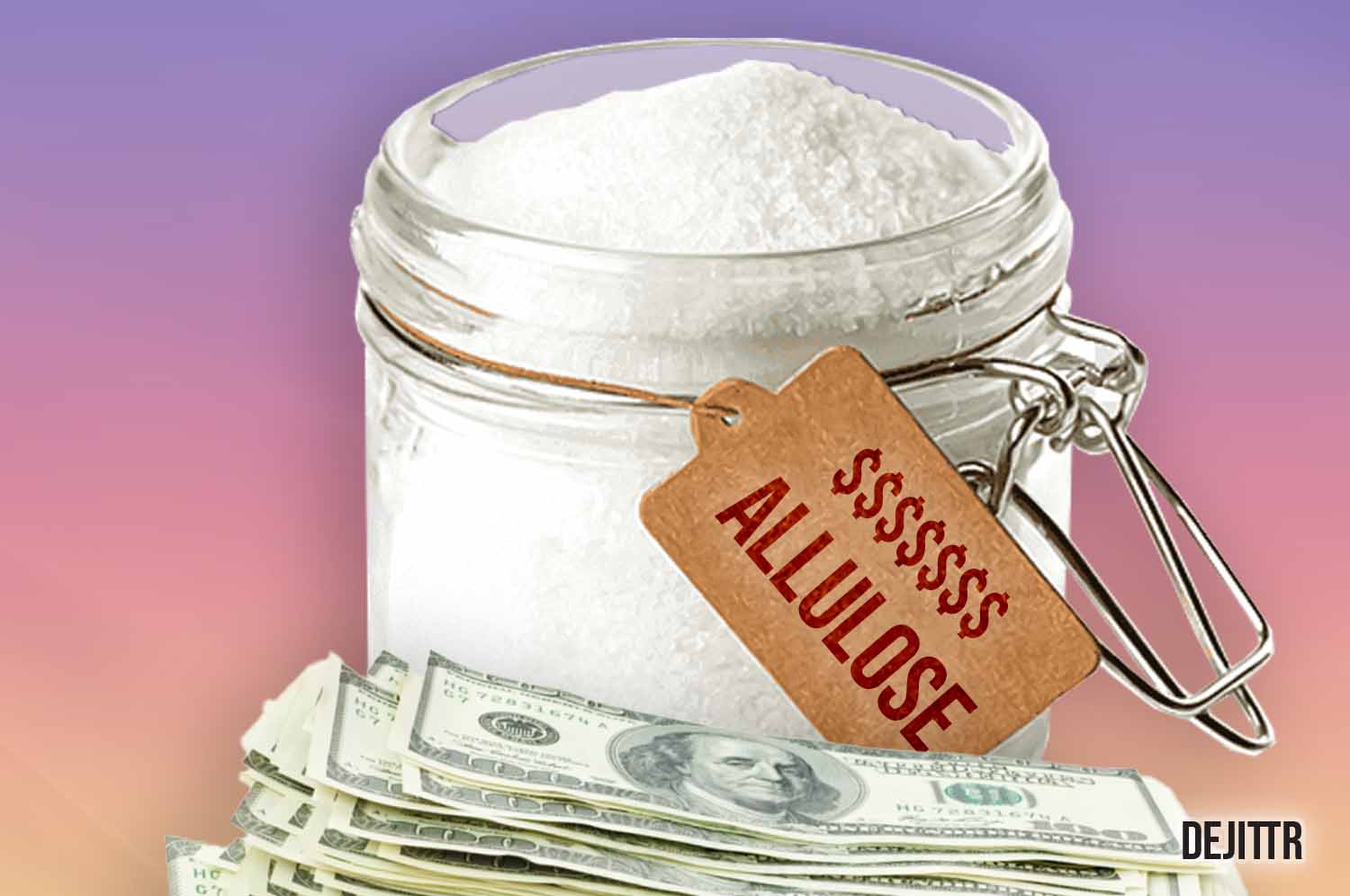Artificial sweeteners are very popular synthetical substances used as alternatives to sugar. They are also called low-calorie sweeteners, non-nutritive sweeteners, sugar substitutes, or intense sweeteners because they have a taste similar to sugar, but they provide a sweetness that is thousands of times more intense, while they contain very little or zero calories.
The rise in the incidence of health conditions such as obesity, diabetes, and metabolic syndrome, along with increased awareness among consumers about the potential risks associated with consuming too much sugar, has caused a significant shift in the choice of sweeteners toward low-calorie artificial alternatives.
To meet the demand for sweetness without the negative effects of sugar, food companies are using artificial sweeteners more and more. They are useful in the food industry because they provide a sweet taste without adding significant calories.
Artificial sweeteners are commonly incorporated into a wide range of products, including soft drinks, dairy products, snacks, desserts, baked goods, candies, chewing gum, cereals, and canned foods. Also, you can find them in dietary supplements, medications, lip balms, toothpaste, and mouthwashes.
The use of artificial sweeteners is tightly regulated by government authorities, and it’s possible to find in the market only the ones that have been shown to be safe for consumption.
Meanwhile, mounting research indicates that artificial sweeteners could potentially impact various aspects of our well-being, casting doubts on the supposed health advantages of these replacements.
How Many Types of Artificial Sweeteners Are There?
There are several artificial sweeteners, but not all are approved for use in every country.
The US Food and Drug Administration (US-FDA) has approved six artificial sweeteners as food additives for use in humans and has classified them under the category “generally recognized as safe” (GRAS). They can be from 200 to 20,000 times sweeter than table sugar, which is the main difference between them. They are:
| Artificial Sweetener | N° times sweeter than sugar | Most found in |
| Saccharine | 200-700 | Tabletop sweeteners |
| Aspartame | 200 | Diet soda, sugar-free gum |
| Sucralose | 600 | Diet soda, sports drinks, and sugar-free gum |
| Acesulfame potassium or Ace-K | 200 | Soft drinks, fruit juices, baked goods, gum |
| Neotame | 7,000-13,000 | Processed foods and beverages, particularly those marketed as low-calorie or sugar-free |
| Advantame | 20,000 | Processed foods and beverages, particularly those marketed as low-calorie or sugar-free |
Below are other common artificial sweeteners, some of them banned in many countries.
| Artificial Sweetener | N° times sweeter than sugar | Most found in |
| Cyclamate | 50 | Baking goods, soft drinks |
| Neohesperidin | 340 | Baked goods, frozen desserts, soft drinks, flavored waters |
| Alitame | 2,000 | Yogurts, chewing gum |
| Thaumatin | 2,000 – 3,000 | Yoghurts, chewing gum |
How Are Artificial Sweeteners Produced?
Each artificial sweetener is created through its own unique process.
Overall, the production of these agents involves complex chemical processes. For example, aspartame is produced by combining the two amino acids phenylalanine and aspartic acid through a chemical process, sucralose is produced by a long process of chlorinating, purifying, and processing sugar molecules, and ace-K is produced by combining acetoacetic acid with potassium and treating the resulting compound with methylene chloride.
Artificial Sweeteners vs. Nutritive Sweeteners
It’s important to highlight the difference between artificial or non-nutritive sweeteners and nutritive sweeteners.
While the artificial ones are calorie-free, the nutritive sweeteners have some calories and provide nourishment and energy to the body.
They can be natural or artificial and include various sugars and sugar alcohols.
Examples of nutritive sweeteners are:
- Glucose
- Fructose
- Corn syrup
- High-fructose corn syrup
- Maltodextrin
- Cane sugar.
A special category of nutritive sweeteners is represented by sugar alcohols (like sorbitol, mannitol, and xylitol). In contrast to the artificial ones, most of them are found naturally in plant-based sources, and they are less sweet than sugar. However, they have some properties in common with artificial sweeteners, which are listed below:
- Are less caloric than sugar
- Do not cause blood glucose spikes
- Do not promote tooth decay
- They are found in sugar-free candies, snacks, gums, and beverages
- They are used in toothpaste and medicines
Here you find the most common nutritive sweeteners and their characteristics:
| Nutritive Sweetener | Calories per gram | % sweet as sugar | Most found in | Naturally found in |
| Erythritol | 0.2 | 60% to 80% | Sugar-free chewing gums, candies, and baked goods | Fruits and fermented foods |
| Mannitol | 1.6 | 50% to 70% | Mushrooms, celery, and pumpkins | Sugar-free chewing gums and mints |
| Sorbitol | 2.6 | 50% to 70% | Sugar-free gums, candies, and frozen desserts | Apples, pears, and peaches |
| Xylitol | 2.4 | Same sweetness as sugar | Sugar-free chewing gum, mints, and oral care products | Berries, plums, and corn |
| Isomalt | 2 | 45% to 65% | Sugar-free hard candies, cough drops, and lollipops | Not typically found naturally – it is produced by hydrogenating a mixture of sucrose and glucose |
| Maltitol | 2.1 | 90% | Sugar-free candies, chocolates, and baked goods | Not typically found naturally – it comes from hydrogenating maltose |
| Lactitol | 2 | 30% to 40% | Sugar-free chocolates, baked goods, and ice cream | Not typically found naturally – it is produced by hydrogenating lactose |
Artificial Sweeteners vs. Natural Sweeteners
Common natural sweeteners are:
- Raw cane sugar
- Honey
- Maple syrup
- Dates
- Molasses
- Agave nectar
- Coconut sugar.
They seem healthier than processed sugar and artificial sweeteners because they contain some traces of antioxidants, vitamins and minerals, are naturally occurring, and can be organic.
However, since the amount of nutrients is irrelevant and they contain calories, they may not be the best choice for everyone, for example, for people with high sugar levels or those trying to lose weight. Overall, there is no health benefit to consuming any added sugar or sweeteners, including natural ones.
Nevertheless, natural sweeteners may taste better and be perceived as more satisfying. If consumed in moderate amounts without exceeding the daily limit recommendation, they may be the best choice for people with no health conditions related to metabolism or weight.
There are two other popular sweeteners that are considered natural and not artificial, even if they are processed and are much sweeter than sugar. Below you find them along with their characteristics:
| Sweetener | N° times sweeter than sugar | Most found in | Naturally found in |
| Steviol Glycosides | 200-400 | Natural and organic product | Leaves of the Stevia rebaudiana plant, which is native to South America |
| Monk fruit extract or luo han guo | 100-250 | Food and beverage products | Monk fruit plant or Siraitia grosvenorii which is native to southern China and northern Thailand |
Highly Recommended Read:
In recent years Allulose has gained the title of the holy grail of sweeteners. And Monk fruit is another lesser known natural sweetener. Find out what makes these two natural sweeteners so unique.
Allulose vs. Monk Fruit: The Mighty Under Dogs of Sweeteners
These are the main difference between artificial and natural sweeteners:
| Artificial sweeteners | Natural sweeteners |
| Chemically synthesized | Derived from plants or other natural sources |
| Low in calories or calorie-free | Contain calories |
| Do not contain nutrients | Contain small amount of nutrients |
| Can be used in very small quantities | A bigger quantity is required to sweeten food |
| Their safety is debated | Can lead to teeth decay, overweight and metabolism issues |
| Can leave an aftertaste | May have a better taste |
Why Do We Perceive Artificial Sweeteners as Sweet?
Artificial sweeteners can deceive our brains into thinking we’re consuming sugar.
Since their molecular structure is similar to sugar molecules, they can bind to the specific taste receptors on our tongue responsible for identifying the sugar sweetness, providing a similar sensation to eating sugar.
However, even if they mimic the taste of sugar, our bodies can’t break them down and these compounds pass through our digestive tract without being absorbed, not providing any energy (calories).
Are Artificial Sweeteners Safe for Consumption?
Artificial sweeteners are carefully tested and regulated by the health authorities of each country. When they meet the government’s standard of being “generally recognized as safe,” it means they are not toxic and considered safe for human consumption.
As stated by the nonprofit International Sweeteners Association, “sweeteners are one of the most thoroughly researched ingredients in the world and have been proven safe by global regulatory bodies for decades.”
However, there are some cases in which artificial sweeteners may be very harmful. Experts recommend avoiding them in the following cases:
- Phenylketonuria: People affected by this rare genetic disease cannot metabolize the amino acid phenylalanine, which is found in aspartame.
- Allergy to sulfonamides: Saccharin, which belongs to the category of sulfonamides, may cause breathing problems, rashes, or diarrhea in these cases.
- Inflammatory bowel disease: Artificial sweeteners may cause a flare-up of the symptomatology.
- Children under 2 years old: Most studies on artificial sweeteners safety are carried on in adults so we really don’t know what long-term health effects they might have on children.
Moreover, a pediatric epidemiological study found a positive correlation between the intake of beverages containing artificial sweeteners and weight gain in children. - Pregnant women: Some studies stated that artificial sweeteners may increase the risk of preterm delivery, while others highlight their safety, so it’s better to avoid consuming them regularly or in huge amounts during pregnancy.
- Migraine and epileptic patients with low seizure threshold: these compounds may act as a trigger of headache and seizures, even if other evidence shows the opposite that is they have anticonvulsant activity.
The fact they are not toxic doesn’t mean they are healthy. One of the reasons artificial sweeteners are generally considered safe is that they are not metabolized in the body. However, there are many concerns over the toxicity of non-metabolized compounds.
Safety Concerns and Potential Risks of Artificial Sweeteners Consumption
It’s difficult to generalize and establish whether artificial sweeteners are safe or not. Each sweetener has different chemical structures, and its safety needs to be considered separately.
Moreover, since most of the safety studies done analyze the short-term effects only, very limited data on the long-term effects of these substitutes are available.
On one hand, there is huge evidence about the safety of artificial sweeteners. On the other hand, many studies are showing that the consumption of artificial sweeteners may not be as advantageous as previously believed.
In the following section, we will delve into the extensively studied potential risks associated with artificial sweeteners.
- Cancer: Since the 1970s, many studies have been conducted to assess the link between artificial sweeteners and cancer. The first findings on animal trials correlate an increased risk of bladder cancer in mice fed with high amounts of saccharin and cyclamate.
Since then, extensive studies both in animals and humans, have failed to show the association between cancer and artificial sweeteners. Also, a systematic review analyzed studies published over 11 years on about 600,000 people and confirmed there’s no link between cancer risk and artificial sweetener consumption. - Cardiovascular diseases: According to a British long-term study with 11–12 years follow-up, the consumption of two or more servings of diet soda containing artificial sweeteners was associated with a higher risk of coronary heart disease and chronic kidney disease compared to consuming less than one serving per month.
Another study found that erythritol was associated with an increased risk of major adverse cardiovascular events, including myocardial infarction, stroke, and atherothrombotic diseases. Overall, there is a potential direct correlation between cardiovascular risk and artificial sweetener consumption, but more research is needed. - Alteration of the gut microbiota and metabolic diseases: Recent findings suggest that artificial sweeteners may disrupt the balance of gut bacteria, called microbiota, and as a consequence, the risk of disease would increase.
A study conducted on 120 volunteers has shown that artificial sweeteners, in particular saccharin, induce glucose intolerance by altering the gut microbiota, suggesting they can contribute to the development of metabolic diseases, including diabetes.
Another interesting study on mice conducted in Israel showed that artificial sweeteners change the population of gut bacteria that direct metabolism, in particular, they enhance the populations of bacteria that are more efficient at pulling energy from food and turning that energy into fat, suggesting that their consumption can lead to overweight and have impaired glucose tolerance.
The same relation between bacteria and obesity was found in obese humans, so this evidence has raised alarms about whether artificial sweeteners consumption can exacerbate metabolic disorders due to dysbiosis and make diabetes and obesity risk or progression worse. However, more research is needed to understand better the impact of artificial sweeteners on the gut microbiome. - Diabetes: On top of the studies relating artificial sweeteners with gut microbiota alterations and diabetes, some other studies have reported that the consumption of soda containing artificial sweeteners is associated with a greater risk of developing type 2 diabetes, insulin resistance, and weight gain.
Also, there is evidence that some artificial sweeteners like sucralose can reduce insulin sensitivity. Another study has demonstrated that aspartame induces a rise in glucose and insulin levels suggesting that switching to artificial sweeteners might be very harmful for diabetics.
On the other hand, many studies confirmed that artificial sweeteners like sucralose do not affect blood sugar or insulin levels. Despite all the potential risks and the non-unanimous studies, the current scientific evidence favors artificial sweetener consumption among diabetics.
Can You Gain Weight From Artificial Sweeteners?
Observational studies on the impact of artificial sweeteners on weight have reported contrasting results.
The use of artificial sweeteners may lead to weight loss by reducing calorie intake, as reported from controlled studies that showed that they may reduce body weight, fat mass, and waist circumference and can decrease body mass index by up to 1.3–1.7 points.
On the other hand, it has been suggested that artificial sweeteners may cause cravings for sugary foods, so opting for diet drinks will not lead to any weight loss if you eat extra sweets. The benefits of weight loss are often offset by this phenomenon of compensation, which means it’s more likely to consume calories in excess later in the day for compensating the energy deficit created by low-calorie food.
Some studies showed a positive correlation between artificial sweetener use and weight gain, whereas others found a direct dose-response correlation between the consumption of beverages containing them and the incidence of obesity.
Clear-cut evidence-based conclusions cannot be drawn solely from observational data; more research is needed to determine their effects on weight. The American Heart Association and American Diabetes Association have stated that “when used judiciously, artificial sweeteners may help with weight loss or control and have beneficial metabolic effects.” However, paying attention to the possible compensatory increase in energy intake from other sources is important.
Benefits And Drawbacks of Artificial Sweeteners
Artificial sweeteners have been debated in the scientific community due to their potential benefits and drawbacks. Here you find a recap of the pros and cons of artificial sweeteners:
| Pros: | Cons: |
| Low-calorie option | Controversy over potential long-term effects on health and safety |
| Diabetic-friendly (even though it’s debated) | May cause digestive issues or other adverse effects |
| Can be used in very small amounts | May increase sugar cravings |
| Tooth decay prevention: Unlike sugar, artificial sweeteners don’t promote tooth decay and can be beneficial for oral health as shown by the scientific evidence. | Limited nutrients |
What Are the Most Commonly Used Artificial Sweeteners, and Why?
The most commonly used artificial sweeteners are:
- Aspartame: It is one of the most widely used artificial sweeteners in the world because it is very sweet and tastes similar to sugar, without adding significant calories to the diet.
- Sucralose is another popular option, much sweeter than sugar and aspartame. It has a plus: unlike aspartame, is heat-stable and can be used in baking.
- Saccharin: It was one of the first artificial sweeteners to be developed and is still used today. It is commonly used in diet drinks, baked goods, and other processed foods.
Do Zero-Sugar Drinks Contain Artificial Sweeteners?
Zero-sugar drinks often contain artificial sweeteners as a way to provide a good level of sweetness without the calories that come from sugar.
In most of these drinks, there is a blend of sweeteners. For example, Coca-Cola Zero-sugar uses a combination of aspartame, acesulfame potassium, and sucralose, while Red Bull Sugarfree uses aspartame, acesulfame potassium, stevia, sucralose, and erythritol.
10 Most Popular Beverages and What’s Used to Sweeten It
Here are the 10 most popular beverages in which different sweeteners are used:
- Coca-Cola, Pepsi, Sprite, and other diet sodas: Sweetened with high fructose corn syrup, and in their Zero Sugar version with aspartame and acesulfame potassium.
- Red Bull, Monster Energy, and other energy drinks: Sweetened with sucrose and glucose, and in its Sugar-free version with aspartame, acesulfame potassium, erythritol, and sucralose.
- Protein shake drinks: Sweetened with natural ingredients like stevia, monk fruit extract, or artificial sweeteners like sucralose or aspartame, depending on the brand.
- Gatorade, Powerade, and other sports drinks: Sweetened with high fructose corn syrup, and in their the Zero version with sucralose and acesulfame potassium.
- Nestea and other iced tea: Sweetened with high fructose corn syrup or sugar, and in the Zero version with sucralose and acesulfame potassium.
- Vitaminwater Zero: Sweetened with erythritol and stevia.
- Flavored water like Crystal Light and Propel: Sweetened with high fructose corn syrup, and in their Zero Sugar version with aspartame, acesulfame potassium, and sucralose.
- Packaged coffee and tea: Usually sweetened with sugar, artificial sweeteners, or syrups like vanilla or caramel.
- Milkshakes, fruit juices, and yogurt drinks: Sweetened with sugar, syrups, and artificial sweeteners.
- Alcoholic beverages: Some of them are made with naturally sweet ingredients, such as fruits or honey, while others are sweetened with added sugars, such as sucrose, glucose, or fructose. Many low-calorie alcoholic beverages, such as light beers and wine spritzers, are sweetened with artificial sweeteners.
Conclusion
Artificial sweeteners are widely used as a sugar substitute in various drinks and food products, due to their purported beneficial effects, such as reducing calories and improving the palatability of food. Even if their presence on the market is ubiquitous, their use is still controversial, and there are many concerns about their safety.
FDA regulates the use of artificial sweeteners as food additives and recognizes them as safe.
There’s evidence that artificial sweeteners benefit weight loss, blood sugar control, and dental health. They can be very useful for managing weight excess in the short term during the transition to a healthy diet.
On the other hand, there is a chance that continuous exposure to these agents can lead to various dysregulations in the metabolism, the gut, and the sweet preferences with consequences on general health, so many of their benefits are invalidated on a large scale from some clinical studies.
Also, it is important to remember that different people incorporate artificial sweeteners into their diets with different goals. Since their possible negative effects vary by individual and depend on the type of artificial sweetener consumed, it’s likely that you won’t encounter any problem using some of them.
What is most important is to make informed choices while selecting products that contain artificial sweeteners. In general, it is safe to take in small amounts of artificial sweeteners, and it is recommended to limit their use, without worrying too much about consuming them once in a while.












